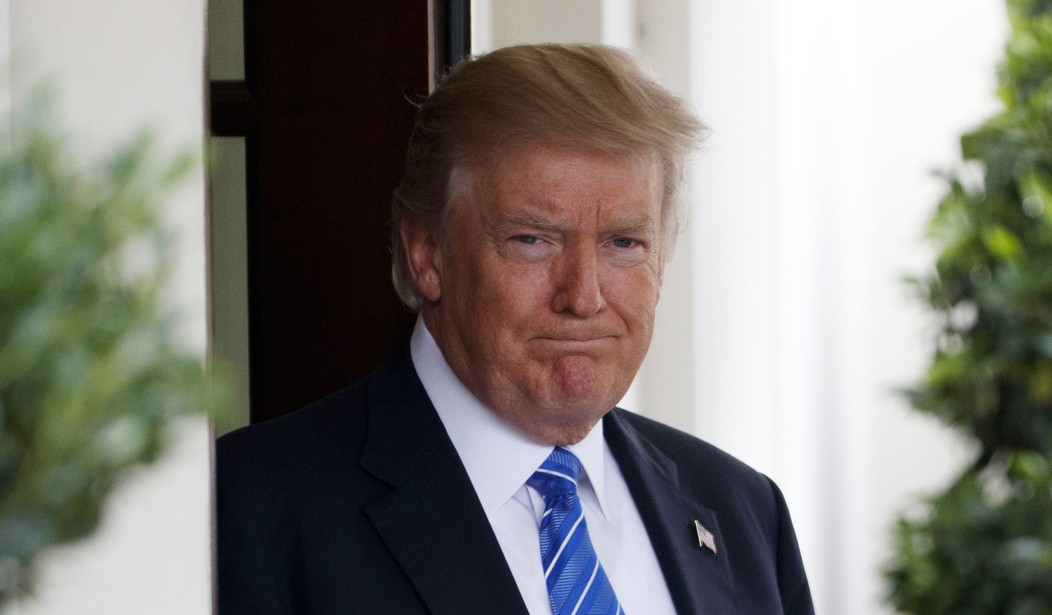Pretty nervy of Ryan and McConnell. I thought the way they’d satisfy Democrats eager to censure Trump for his Charlottesville “very fine people on both sides” comments would be to pass a resolution that condemned the white nationalists and omitted any direct reference to POTUS. The resolution would refer to him *indirectly*, I assumed, by pointedly disagreeing with him that both sides bore blame, etc. But it wouldn’t challenge him directly. No way would a Republican-led Congress put a Republican president on the spot that way.
My mistake. The resolution they passed yesterday does in fact challenge him directly:

It goes on to offer condolences for Heather Heyer and the two Virginia police officers whose chopper crashed and calls on Jeff Sessions and the DOJ to “investigate thoroughly all acts of violence, intimidation, and domestic terrorism by White supremacists, White nationalists, neo-Nazis, the Ku Klux Klan, and associated groups.” There’s not a word in there about Antifa. Calling on Trump to denounce white supremacy is a strong signal from the GOP majority that they think his efforts so far have been lackluster, which would be noteworthy even if that was all there is to this.
But there’s more:
In a rare show of bipartisan unity, Speaker Paul D. Ryan of Wisconsin and Senator Mitch McConnell of Kentucky, the majority leader, introduced the measure as a joint resolution, which requires a presidential signature. Two Republican congressional aides involved in the process said the intent was to put the president on the record calling out white racism by name.
They could have structured this as separate “sense of the House/Senate” resolutions that wouldn’t have required any presidential input. They deliberately made it a joint resolution to force Trump to decide whether to sign it or not. Tim Kaine, Hillary’s running mate, emphasized that the point was to put Trump on record, saying, “I think it’s great for [Democrats and Republicans] to be able to make a moral call that white supremacy’s not acceptable, and I want the president to have to sign it. We wouldn’t have had to add in that point had he not demonstrated this moral equivocation at the time, but I think it would be a really good thing.”
Will Trump sign it? As of last night, he was, er, undecided:
Asked whether president will sign, WH spox says "No announcements at this time." https://t.co/Scf2yh14AW
— Kyle Cheney (@kyledcheney) September 12, 2017
There’s a 99 percent chance that he’ll end up signing but the mere fact that Ryan and McConnell forced him to is real news. We’re left to wonder: Would they have put him on the spot this way if he hadn’t embarrassed them last week by siding with Schumer and Pelosi on the debt-ceiling extension? This resolution is a shot across the bow warning POTUS that his party leaders can make life difficult for him if he makes life difficult for them. Essentially they’re telling him that if he wants to act like an independent, they’ll treat him as an independent, spending no political capital to defeat measures like this that aim to embarrass him. The stakes are low with a joint resolution of condemnation like this, but they’d be very high if Ryan and McConnell apply that attitude to Mueller’s Russiagate probe too.
The odds that Trump will veto the resolution because it doesn’t condemn Antifa or for some other Trumpy reason can’t be higher than one percent, but they’re certainly no lower. Imagine the media reaction if he dropped a veto.
Update: Yup, says Sarah Huckabee Sanders, he’ll sign it.







Join the conversation as a VIP Member